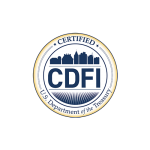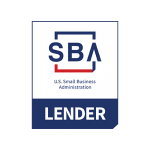Mastering Your Finances

Financial literacy is the means to gain control over your finances. By becoming financially literate, you will understand how to allocate your income toward different goals. It provides the tools you need to help manage ongoing expenses, and still fund a savings or debt repayment fund.
Financial literacy provides knowledge about financial, credit, and debt management. This helps you to make financially responsible decisions and consequently helps to improve the quality of your everyday life.
Financially literate consumers manage money with more confidence and are better equipped to deal with the inevitable challenges of life. From keeping a close eye on bank and credit card accounts to being able to recover quickly from a costly unexpected car repair, financial literacy can help you as a consumer save for things that are important to you, such as a down payment on a new house or your child’s college education.
Financial literacy is today more important than ever because now employers no longer manage retirement funds. Individuals must manage their own funds via self-directed retirement accounts.
Towards Financial Literacy
Don’t let the term “financial literacy” intimidate you. Everyone is capable of improving their financial knowledge. Here are practical steps you can take, and resources that can help you improve your financial life:
Determine how much you earn and what you can spend.
Creating a personal budget is one important way to establish a true understanding of your income and expenses. With a budget, you can track spending and revisit your spending plan regularly. There are many budgeting methods, look for one that works for you.
Repay and avoid debt.
Shop around for the lowest interest rates when comparing terms for a loan to save money. Pay off credit card balances each month, to avoid accruing interest charges. If you currently are feeling burdened by debt, financial literacy can help you choose the best methods to get out of debt, either on your own or with the help of a non-profit credit counselor.
Create an emergency saving account.
Prevent debt from building by creating an emergency savings account. You will need to set aside three to six months’ worth of expenses and aim to keep it at that level going forward.
Take advantage of free resources.
Look for free-spending tracking tools that are now available to you. Today, many banks, credit union,s or credit card issuers are providing free programs that help you track your spending patterns. Experian offers free credit score monitoring. You can use these tools to get a snapshot of where your money is going and where you stand with your credit.
Check with your employer.
Find out whether the company you work for offers free financial counseling or an employee financial wellness program. Schedule a time to speak with a financial professional as part of your suite of workplace benefits. This can give you early insight into the areas you most need to focus on (saving, retirement, budgeting, or debt reduction).
Check out these go-to-resources.
Consumer Financial Protection Bureau: This federal agency provides many online consumer resources, including guides on how to approach major financial decisions like paying for college and getting an auto loan.
Financial Planning Association: This membership organization for financial planning professionals regularly posts resources with helpful information on various life events and financial topics, such as estate planning and divorce.
National Foundation for Credit Counseling (NFCC): Member organizations of the NFCC offer credit counseling locally and remotely, and the NFCC’s website includes free planning tools and calculators that can help you budget and plan for retirement.
The Bottom Line
Any improvement in financial literacy will have a profound impact on your life and the people who rely on you. Current economic conditions are making it all the more important that consumers understand basic finances. Becoming financially literate is not easy, but when mastered, it can ease life’s burdens tremendously.
Ultimately, the best outcome of your commitment to financial literacy will be increased confidence in yourself. Possessing the right knowledge will help you make informed decisions. This will help you avoid going into debt or investing in risky assets. Once informed, you can create and pursue financial goals that will most support your vision for a happy life.





